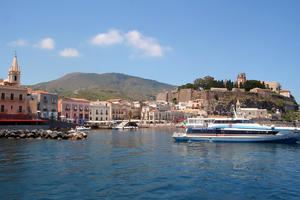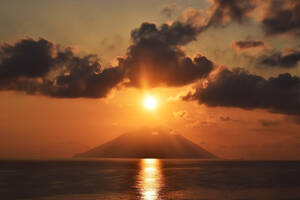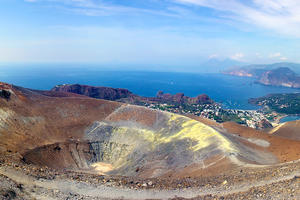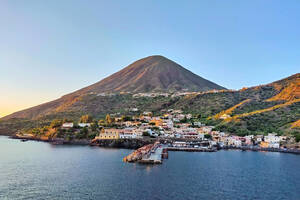Aeolian Islands in Sicily
The Aeolian Islands comprise seven islands in the north of Sicily
The Aeolian Islands are of volcanic origin, located north of Sicily in the Tyrrhenian Sea and with their islands Alicudi, Filicudi, Lipari, Panarea, Salina, Stromboli and Vulcano they are a fantastic destination away from mass tourism. One of the reasons for this is that they can only be reached by sea. Ferries and speedboats run several times a day between Milazzo and Lipari, the central transfer port for all islands. The islands can also be reached from Messina, Cefalù, Palermo, and Naples.
They owe their sonorous name to the locals, who named the archipelago after the Greek god of the wind, Äolos. In the 13th century, the wealth of obsidian, the shiny black volcanic glass, attracted conquerors to the archipelago. Among them the king Liparos, who named the islands after himself. This explains why today the archipelago is known both as the Aeolian Islands and the Liparic Islands.
What makes these islands so attractive to nature lovers and bathers is their wild and untouched nature: crystal clear sea, open-air thermal springs and landscapes that are different on each island due to their geological characteristics. The brilliant white of the pumice stone contrasts with the lush green of the macchia bushes and tufts of grass. The earthy to red tones of the soil blend harmoniously with the deep black of the lava, creating a spectacular play of colours. The coasts almost always consist of steep shores breaking off into the sea. Caves, grottos and rock arches, small cliffs and tiny bays form a previously undestroyed landscape. Because of this uniqueness, UNESCO declared the Aeolian Islands a World Heritage Site in 2000.



